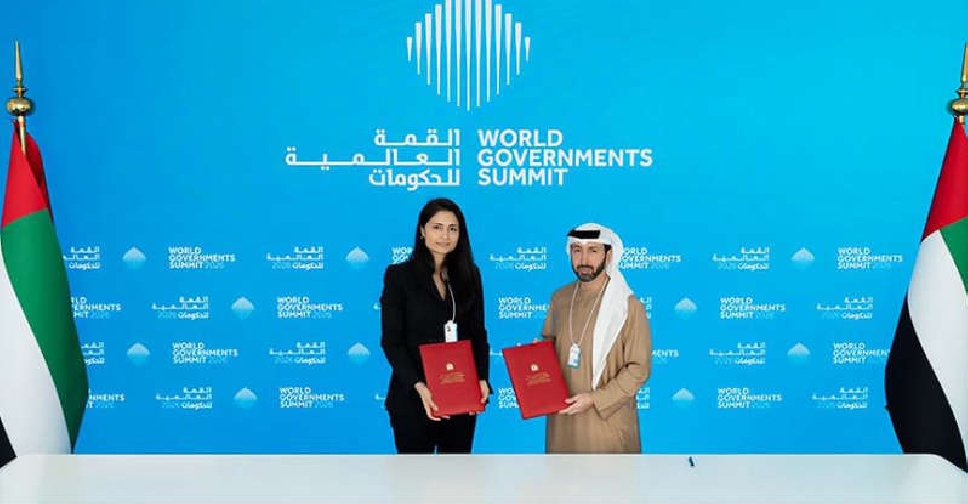
A US attack on Iranian nuclear sites could push oil prices even higher and trigger a knee-jerk rush to safety, investors said, as they assessed how the latest escalation of tensions would ripple through the global economy.
The reaction in Middle East stock markets, which trade on Sunday, suggested investors were assuming a benign scenario, even as Iran intensified its missile attacks on Israel in response to the sudden, deep US involvement in the conflict.
Trump said Iran's "key nuclear enrichment facilities have been completely and totally obliterated" and added that the US military could go after other targets in Iran if the country did not agree to peace.
Iran said it reserves all options to defend itself, and warned of "everlasting consequences".
Investors said they expected the US involvement would cause a selloff in stock markets and a possible bid for the dollar and other safe-haven assets when major markets reopen, but also said much uncertainty about the course of the conflict remained. "I think the markets are going to be initially alarmed, and I think oil will open higher," said Mark Spindel, chief investment officer at Potomac River Capital.
"We don't have any damage assessment and that will take some time. Even though he has described this as 'done', we're engaged. What comes next?" Spindel said. "I think the uncertainty is going to blanket the markets, as now Americans everywhere are going to be exposed. It's going to raise uncertainty and volatility, particularly in oil," he added.
One indicator of how markets will react in the coming week was the price of ether, the second-largest cryptocurrency and the new gauge of retail investor sentiment after bitcoin, which is now held largely by institutions.
Ether was down 5 per cent on Sunday, taking losses since the first Israeli strikes on Iran on June 13 to 13 per cent.
Most Gulf stock markets, however, seemed unconcerned by the early morning attacks, with the main indexes in Qatar, Saudi Arabia and Kuwait up slightly and Israel's Tel Aviv main index at an all-time high.
OIL PRICES, INFLATION
A key concern for markets would centre around the potential impact of the developments in the Middle East on oil prices and thus on inflation. A rise in inflation could dampen consumer confidence and lessen the chance of near-term interest rate cuts.
Saul Kavonic, a senior energy analyst at equity research firm MST Marquee in Sydney, said the more likely scenario would see Iran respond by targeting American interests in the Middle East, including Gulf oil infrastructure in places such as Iraq or harassing ship passages through the Strait of Hormuz.
The Strait of Hormuz lies between Oman and Iran and is the primary export route for oil producers such as Saudi Arabia, the UAE Iraq and Kuwait.
"Much depends on how Iran responds in the coming hours and days, but this could set us on a path towards $100 oil if Iran respond as they have previously threatened to," Kavonic said. While global benchmark Brent crude futures LCOc1 have risen as much as 18 per cent since June 10, hitting a near five-month high of $79.04 on Thursday, the S&P 500 has been little changed, following an initial drop when Israel launched its attacks on Iran on June 13.
In comments after Trump announced the strikes, Jamie Cox, managing partner at Harris Financial Group, agreed oil prices would likely spike on the initial news. But Cox said he expected prices to likely level off in a few days as the attacks could lead Iran to seek a peace deal with Israel and the United States.
Economists warn that a dramatic rise in oil prices could damage a global economy already strained by Trump's tariffs.
Still, any pullback in equities might be fleeting, history suggests. During past prominent instances of Middle East tensions coming to a boil, including the 2003 Iraq invasion and the 2019 attacks on Saudi oil facilities, stocks initially languished but soon recovered to trade higher in the months ahead.
On average, the S&P 500 slipped 0.3 per cent in the three weeks following the start of conflict, but was 2.3 per cent higher on average two months following the conflict, according to data from Wedbush Securities and CapIQ Pro.



 Pakistan must create 30 million jobs over next decade, World Bank president says
Pakistan must create 30 million jobs over next decade, World Bank president says
 Ghana seeks to deepen strategic investment, innovation ties with UAE
Ghana seeks to deepen strategic investment, innovation ties with UAE
 UAE partners with World Economic Forum to fast-track industrial transformation
UAE partners with World Economic Forum to fast-track industrial transformation
 Creative industries 'key to future growth', WGS-FTI report says
Creative industries 'key to future growth', WGS-FTI report says
 TECOM Group posts strong 2025 results as revenues and profits rise
TECOM Group posts strong 2025 results as revenues and profits rise







